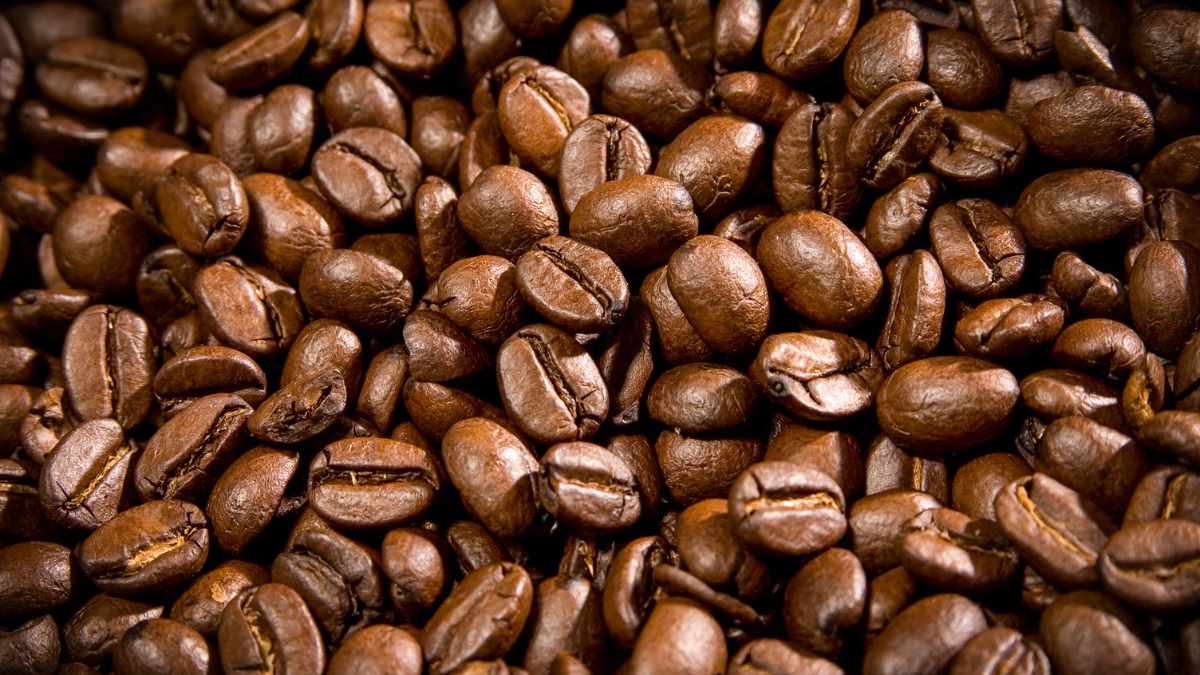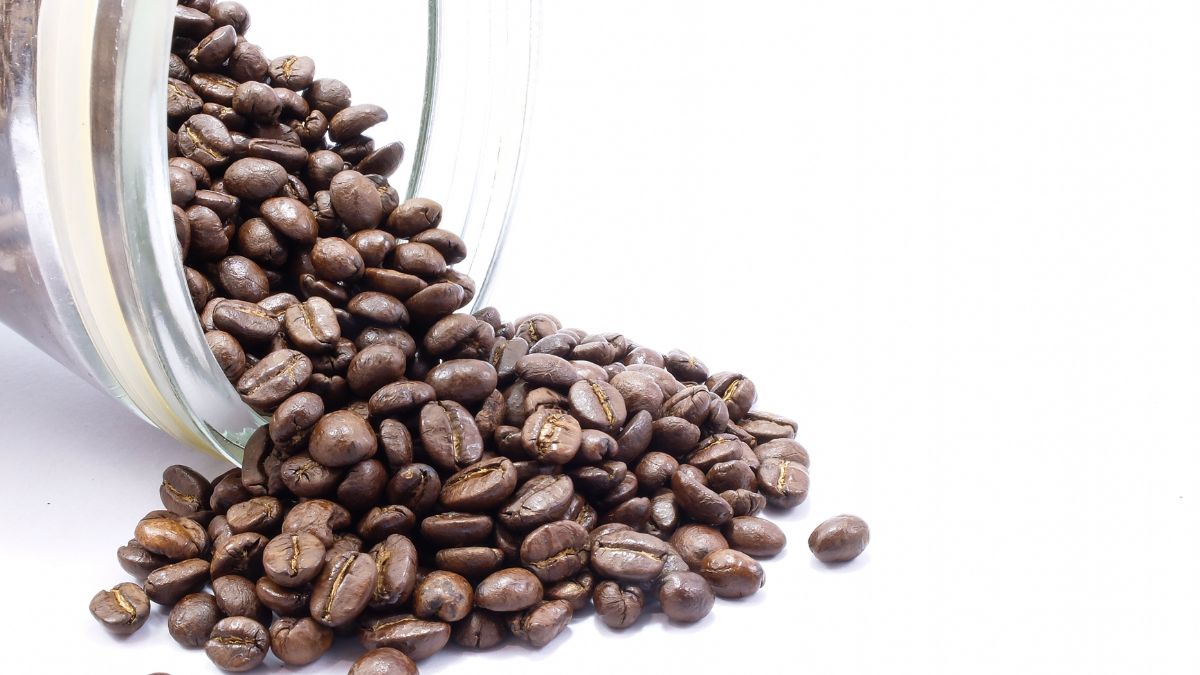Understanding the Basics of Coffee Beans
For many, a morning cup of coffee is more than just a beverage; it’s a ritual. The taste, aroma, and very experience largely depend on the freshness of the coffee beans. But before diving into the specifics of their shelf life, let’s get familiar with the basics.
The Anatomy of a Coffee Bean
Coffee beans aren’t actually “beans.” They’re the seeds of the coffee cherry. Every cherry typically contains two seeds, which we refer to as coffee beans. The process of turning these seeds into the beans we’re familiar with involves several steps:
- Harvesting: Coffee cherries are picked, either by hand or using machines.
- Processing: The flesh of the cherry is removed, leaving the seed. This can be done through various methods such as wet, dry, or honey processing.
- Drying: The beans are then dried until they reach a specific moisture content.
- Roasting: Finally, the beans are roasted to varying degrees, depending on the desired flavor profile.
“To drink is human, to drink coffee is divine!” – Anonymous
Factors Affecting the Freshness of Coffee Beans

Coffee beans are intricate. Their freshness can be influenced by:
- Origin: Beans from different regions (like Africa, South America, or Asia) have distinct flavor profiles and might have varying shelf lives.
- Processing Method: Washed beans tend to have a cleaner taste, natural beans a fruitier one, and honey-processed beans somewhere in between.
- Roasting Levels: Light roasts generally have a more acidic, nuanced flavor, while dark roasts are bolder and less acidic.
Check out our detailed guide on: Where Does Coffee Come From ?
How Long Do Coffee Beans Actually Last?
The pivotal question at the heart of our discussion is precisely how long coffee beans retain their freshness. The answer isn’t just a simple number; it varies based on several factors. Let’s break it down.
Shelf Life of Unopened Coffee Beans
When coffee beans are packed and sealed by producers, they often trap a small amount of air, which is primarily nitrogen, to preserve the beans’ freshness for as long as possible. Here’s a breakdown:
- Whole Beans: If you purchase whole coffee beans that are properly sealed, they can last anywhere from 6 to 9 months in the pantry. If stored in a freezer, they can retain their best quality for up to a year or more but should be consumed within the first month after being unsealed for optimal taste.
- Pre-Ground Beans: Due to their increased surface area, ground beans deteriorate faster. In a sealed packet, they can last 3 to 5 months in the pantry. In the freezer, they remain in good quality for about 3 to 5 months.
| Type of Coffee Bean | Pantry Shelf Life | Freezer Shelf Life |
| Whole Beans | 6-9 months | Up to 12 months |
| Pre-Ground Beans | 3-5 months | 3-5 months |
Shelf Life of Opened Coffee Beans
Once you open a packet of coffee beans, exposure to the environment accelerates the loss of flavor and aroma.
- Whole Beans: After opening, store them in an airtight container at room temperature. They’ll stay fresh for about 2 to 3 weeks. Beyond this period, they’ll still be safe to consume but will have a noticeable decline in flavor.
- Pre-Ground Beans: These lose their freshness even quicker. Once opened, they’ll remain fresh for about 1 to 2 weeks.
Recognizing Stale Coffee Beans
Telling apart fresh beans from stale ones is an art and science combined. Here are some signs:
- Aroma: Fresh beans have a strong, rich aroma. If the smell is weak or off, they’re probably stale.
- Appearance: Fresh roasted coffee beans have a glossy surface due to natural oils. If beans look dull, it might be a sign they’ve lost their freshness.
- Taste: The ultimate test is the brew. Stale coffee often tastes flat, lifeless, or overly bitter.
Tip: Always do a small taste test before brewing a large pot, especially if you’re unsure about the freshness of your beans.
Factors Influencing the Longevity of Coffee Beans

While we’ve explored the general lifespan of coffee beans, it’s crucial to understand the factors that can either extend or shorten their freshness. Proper storage and handling play a pivotal role.
Storage Methods
How and where you store your coffee beans can significantly impact their shelf life.
- Containers: Always opt for airtight containers. Oxygen is one of the primary culprits in reducing the freshness of coffee beans. Glass or ceramic containers are preferred over plastic ones. Some specialized coffee storage containers even come with a valve to let out carbon dioxide, a gas released by freshly roasted beans.
- Storage Conditions: Coffee beans are best stored in cool, dark places. Direct sunlight can degrade the quality of the beans, so a pantry or cupboard is ideal. Also, ensure the area isn’t prone to high fluctuations in temperature.
- Vacuum-sealing and Freezing: While it’s a debated topic, many believe vacuum-sealing and freezing beans can extend their life. However, once you’ve taken beans out of the freezer, avoid putting them back in, as this can introduce moisture, which is detrimental to the bean’s quality.
Grinding Coffee
The act of grinding coffee increases its exposure to the environment, and thus, its freshness is affected.
- Freshness: Coffee begins to lose freshness almost immediately after grinding. The larger surface area exposes more of the coffee to the air, which means more aroma and flavor are lost.
- When to Grind: For the best flavor, grind your beans just before brewing. This ensures that the least amount of flavor is lost between grinding and brewing. If convenience is a concern, try to use your ground coffee within a week.
Fact: A study found that coffee ground just 20 minutes before brewing had a significantly richer and more robust flavor than coffee ground a week prior.
Tips to Maximize Coffee Bean Freshness
If there’s one thing every coffee aficionado agrees on, it’s the pursuit of the perfect brew. And achieving that starts with the freshness of your coffee beans. Here’s how you can get the most out of them:
Buying the Right Coffee Beans
- Roast Date over Expiry Date: Always check the roast date rather than just the expiry date. Coffee beans are best consumed within a month of their roast date.
- Packaging: Bags equipped with a one-way valve are ideal. They allow gases from the beans to escape without letting air in, keeping the beans fresher for longer.
- Whole Beans over Pre-Ground: Whenever possible, buy whole beans. They have a longer shelf life than pre-ground beans and offer a richer flavor when ground just before brewing.
Storage Hacks for Coffee Enthusiasts
- Avoid Clear Containers: If using glass or transparent plastic containers, store them in a dark cabinet. Light can degrade the quality of coffee beans.
- Minimize Air Exposure: Every time you open your coffee container, you’re introducing air, which speeds up the oxidation process. If possible, divide your beans into smaller batches and store them in separate airtight containers. This way, you expose fewer beans to air over time.
- Refrigeration or Freezing?: While it’s a controversial topic, if you choose to refrigerate or freeze your beans, ensure they’re in airtight containers. Never refreeze beans once thawed.
Tip: Consider investing in a vacuum-sealed container if you’re serious about your coffee. These containers limit the beans’ exposure to air, keeping them fresh for longer.
Storing Beans Long-Term
If you find a great deal on coffee beans and want to buy in bulk, or perhaps you’re a home roaster looking for long-term storage solutions, here are some pointers:
- Vacuum Sealing: This method removes most of the air from the storage bag, preserving the beans’ freshness.
- Freezing: For very long-term storage (beyond a few months), freezing is an option. Make sure the beans are in a vacuum-sealed bag. When you’re ready to use them, take out the quantity you need and let them come to room temperature before grinding and brewing.
“Coffee is best enjoyed fresh. Its flavors and aromas are a delicate symphony that fade with time, so drink up while the music still plays!” – Unknown Coffee Lover
Common Questions About Coffee Bean Freshness
Coffee is as much a science as it is an art. Over the years, numerous questions have cropped up regarding coffee beans and their freshness. Let’s address some of the most frequently asked ones.
Can Coffee Beans Go Bad or Become Unsafe?
This is a common concern, especially for those who might discover an old bag of beans in their pantry.
- Safety: While coffee beans can lose flavor over time, they don’t typically become unsafe to consume. Mold is the primary concern. If beans get wet or are stored in a humid environment, mold can develop, which can be harmful if consumed.
- Best Practices: Always store beans in a cool, dry place. If beans smell off or exhibit visible mold or discoloration, it’s best to discard them.
Fact: While stale coffee might not taste great, it’s generally not harmful. However, moldy coffee can cause digestive distress and other health issues.
Does Brew Method Impact How Fresh Coffee Should Be?
The method you use to brew your coffee can indeed affect how noticeable the freshness (or lack thereof) of your beans is.
- Espresso: Because of its concentrated nature, espresso often requires the freshest beans for the best flavor profile.
- French Press: This method is a bit more forgiving. While fresh beans are still ideal, a French Press can produce a decent cup even with beans that are slightly past their prime.
- Pour-Over: Similar to espresso, pour-over methods highlight the nuances of coffee, so fresher beans are preferred.
- Cold Brew: Interestingly, cold brew is quite forgiving when it comes to the freshness of beans. The slow steeping process can often produce a smooth, flavorful brew even with older beans.
| Brew Method | Freshness Sensitivity |
| Espresso | High |
| French Press | Moderate |
| Pour-Over | High |
| Cold Brew | Low |
FAQs on Coffee Bean Freshness
Q: How long do unopened coffee beans last?
A: Unopened whole coffee beans can last from 6 to 9 months in the pantry. If stored in a freezer, they maintain their best quality for up to a year.
Q: How long do opened coffee beans remain fresh?
A: Once opened, whole coffee beans stored in an airtight container at room temperature stay fresh for about 2 to 3 weeks. Pre-ground beans, however, remain fresh for about 1 to 2 weeks.
Q: Can coffee beans go bad?
A: While coffee beans can lose flavor over time, they don’t typically become unsafe to consume unless mold develops due to moisture or humid storage conditions.
Q: How can you tell if coffee beans are stale?
A: Stale coffee beans may have a weak or off aroma, appear dull without a glossy surface, and produce a brew that tastes flat, lifeless, or overly bitter.
Q: Is it better to buy whole or pre-ground coffee beans for freshness?
A: For the best flavor and prolonged freshness, it’s recommended to buy whole beans and grind them just before brewing.
Q: Does freezing coffee beans keep them fresh?
A: Freezing coffee beans can extend their shelf life. However, it’s essential to store them in an airtight container and avoid refreezing them once thawed.
Q: How does the brew method impact coffee bean freshness?
A: Some brew methods, like espresso and pour-over, require fresher beans due to their ability to highlight the coffee’s nuances. Methods like cold brew are more forgiving and can produce decent results even with older beans.
Conclusion
Coffee, for many, is not just a drink; it’s an experience, a ritual, and sometimes, an absolute necessity. The journey of the coffee bean, from the plantations to our cups, is a testament to the intricate processes and passionate individuals involved. Among the many facets of this journey, ensuring the freshness of the beans stands paramount.
From understanding the anatomy of the coffee bean, recognizing the signs of stale beans, to mastering the best storage practices, we’ve traversed the aromatic world of coffee bean freshness. Every sip of our beloved brew reminds us of the importance of using fresh beans, and armed with the knowledge from this guide, every cup can be a step closer to perfection.
We’d love to hear from you! Share your coffee stories, tips, and experiences in the comments. And for those eager to dive deeper into the world of coffee, explore our blog for more brew-tiful insights!







